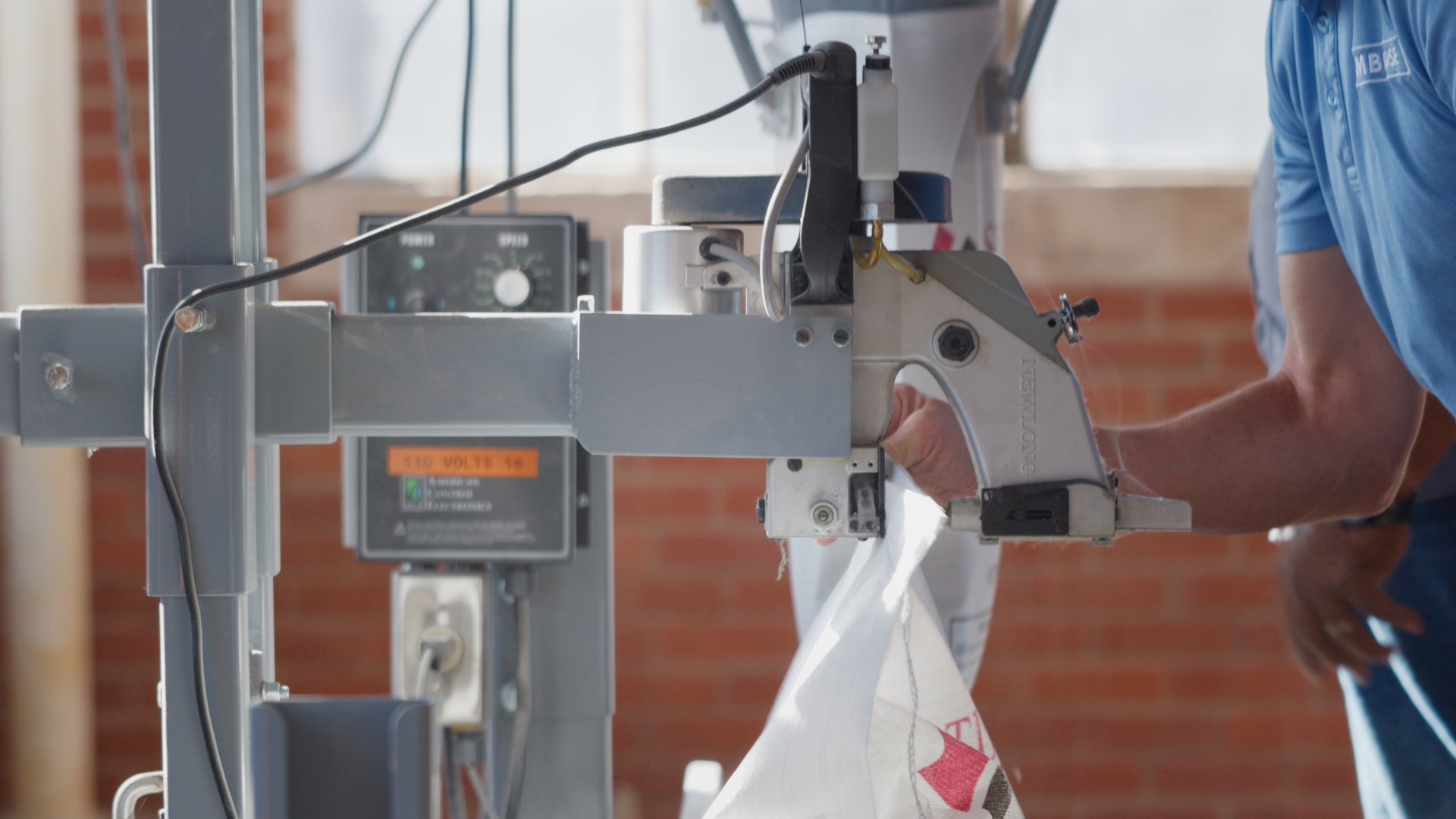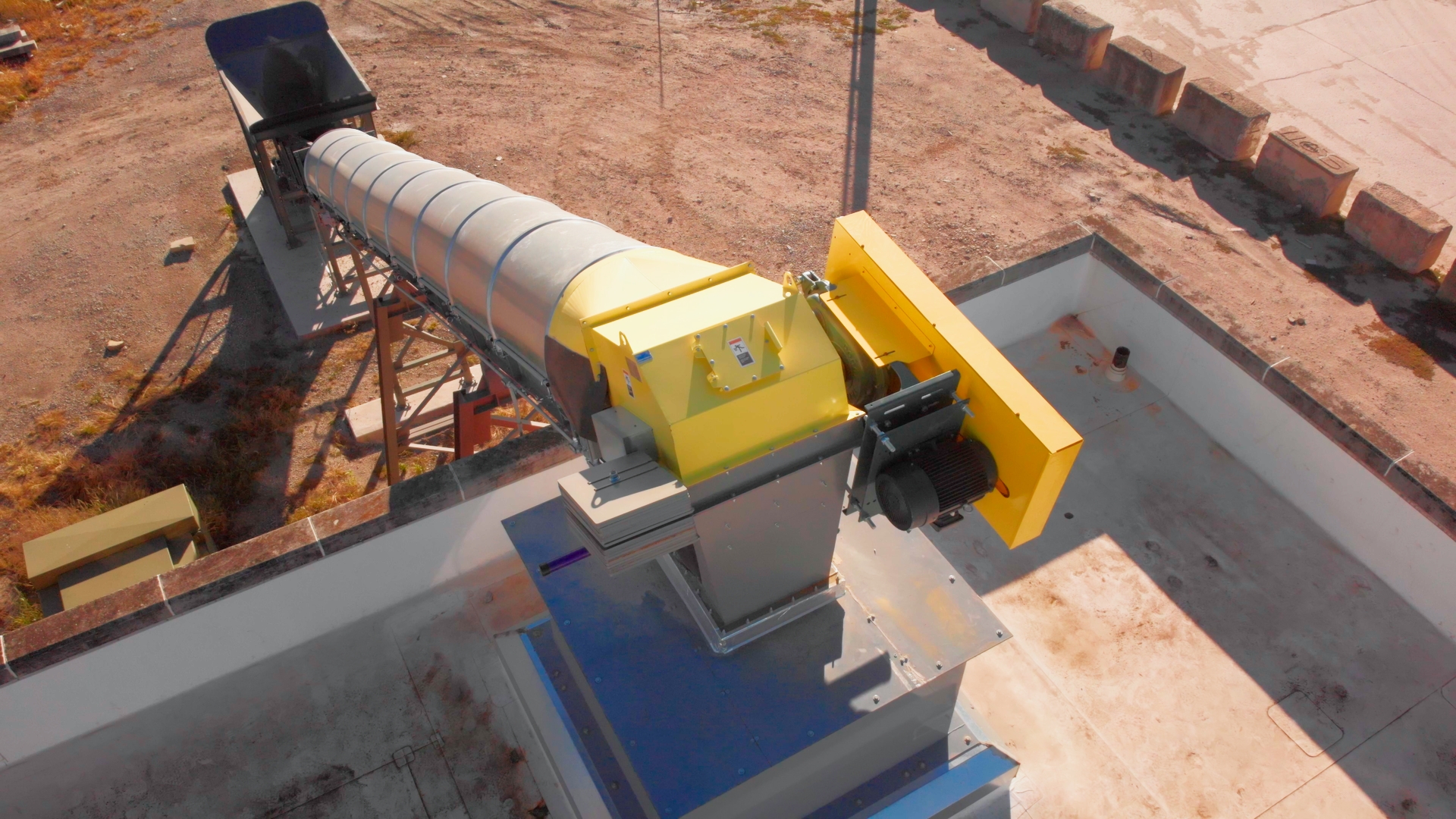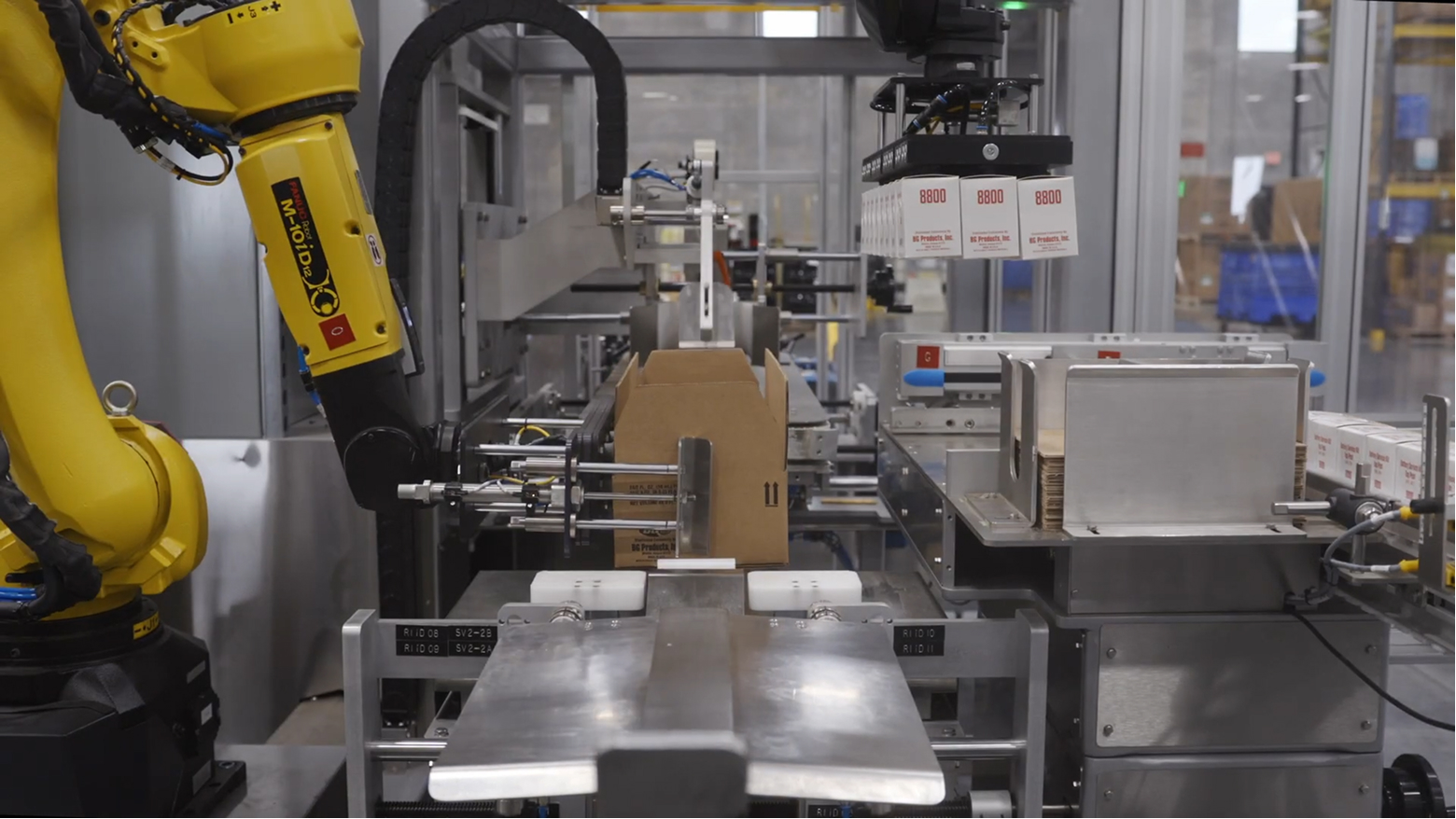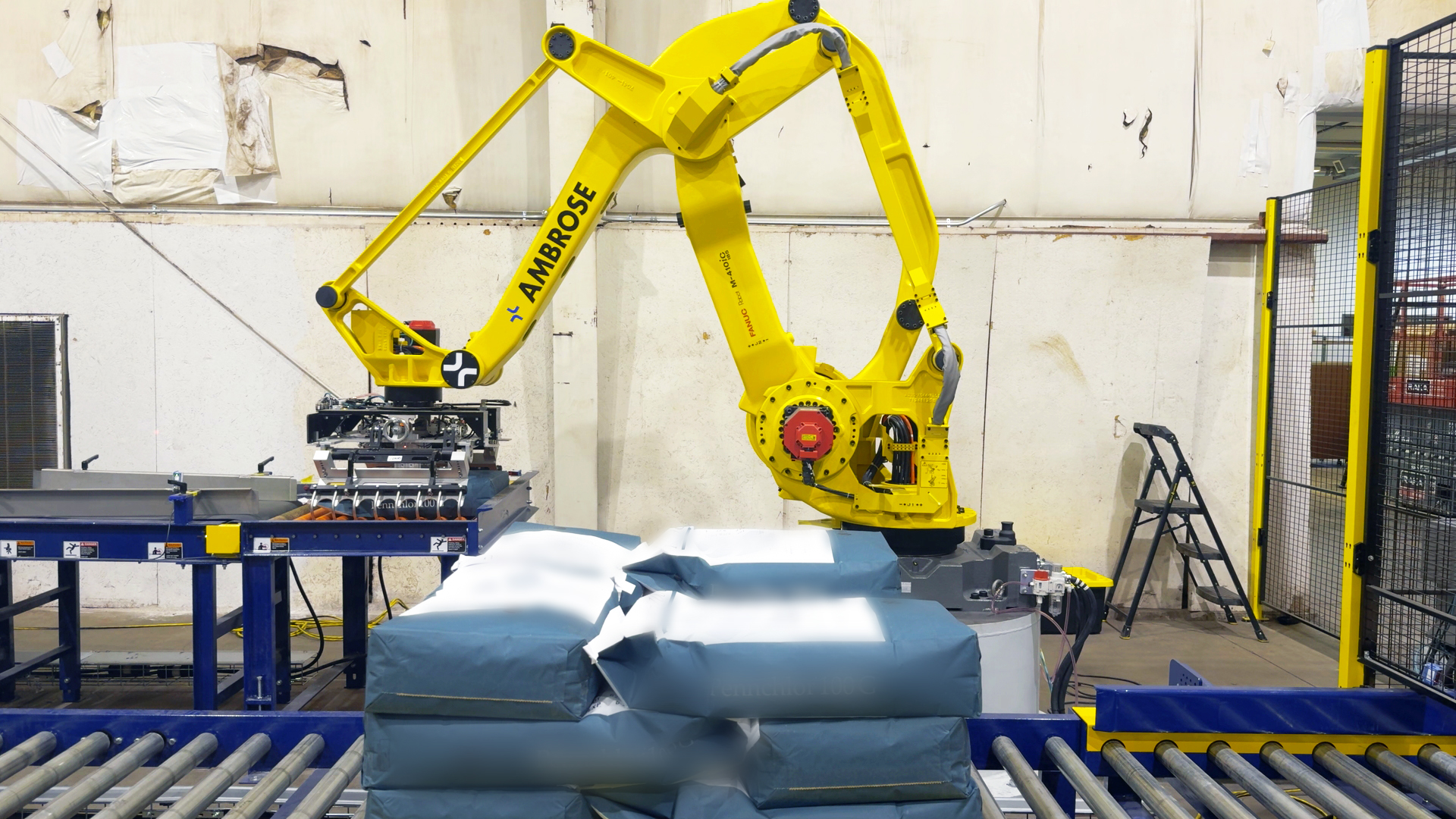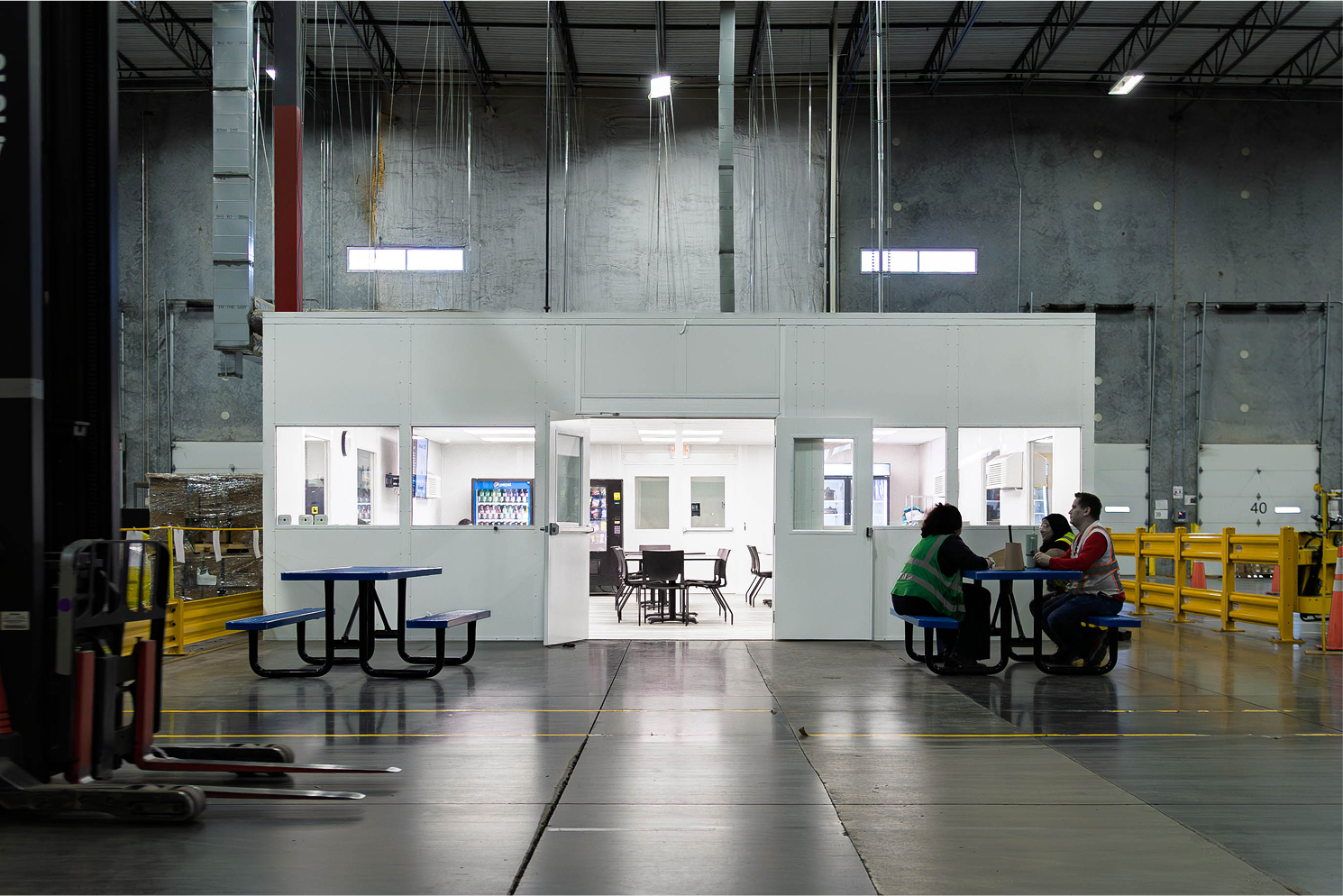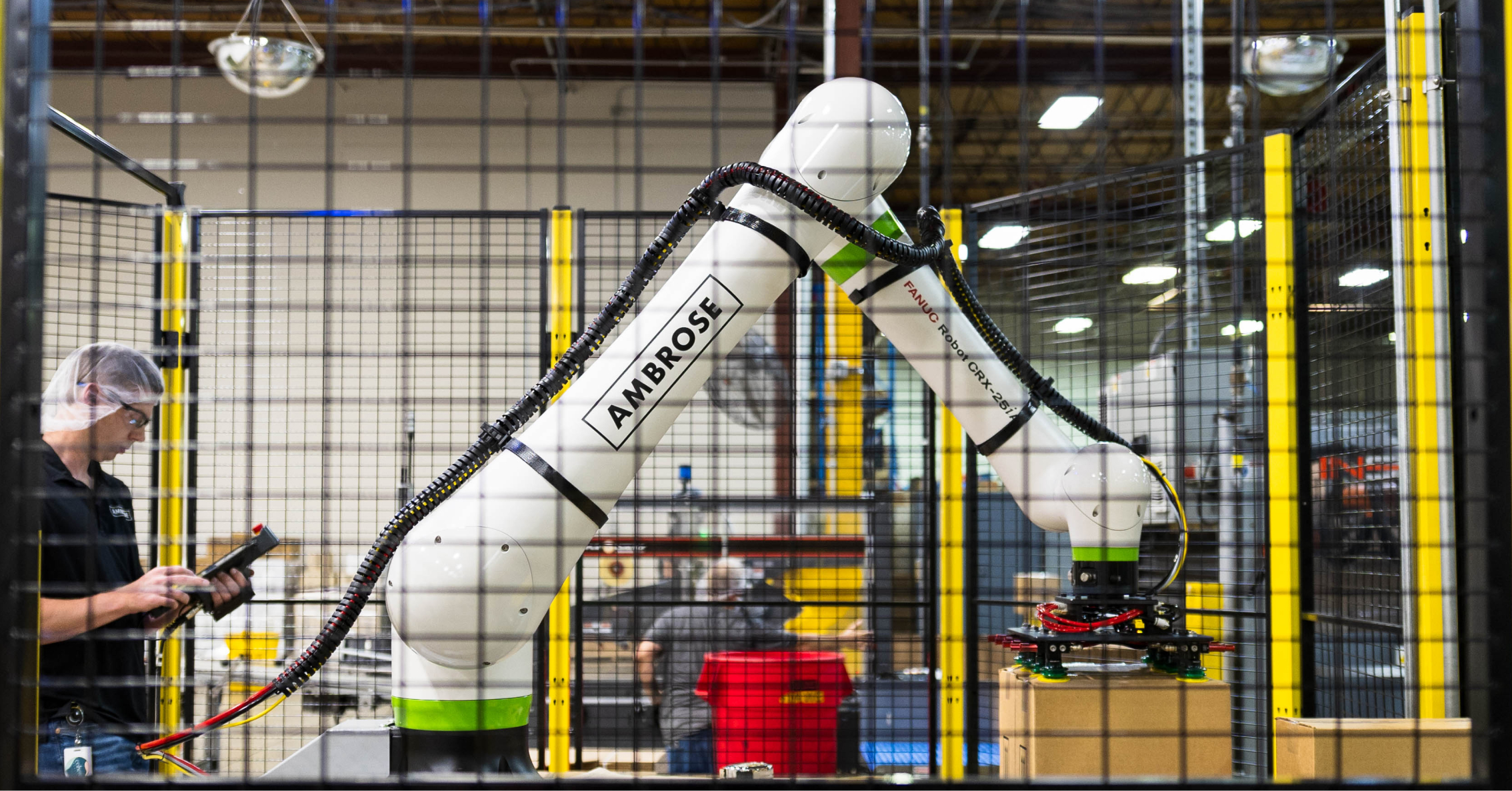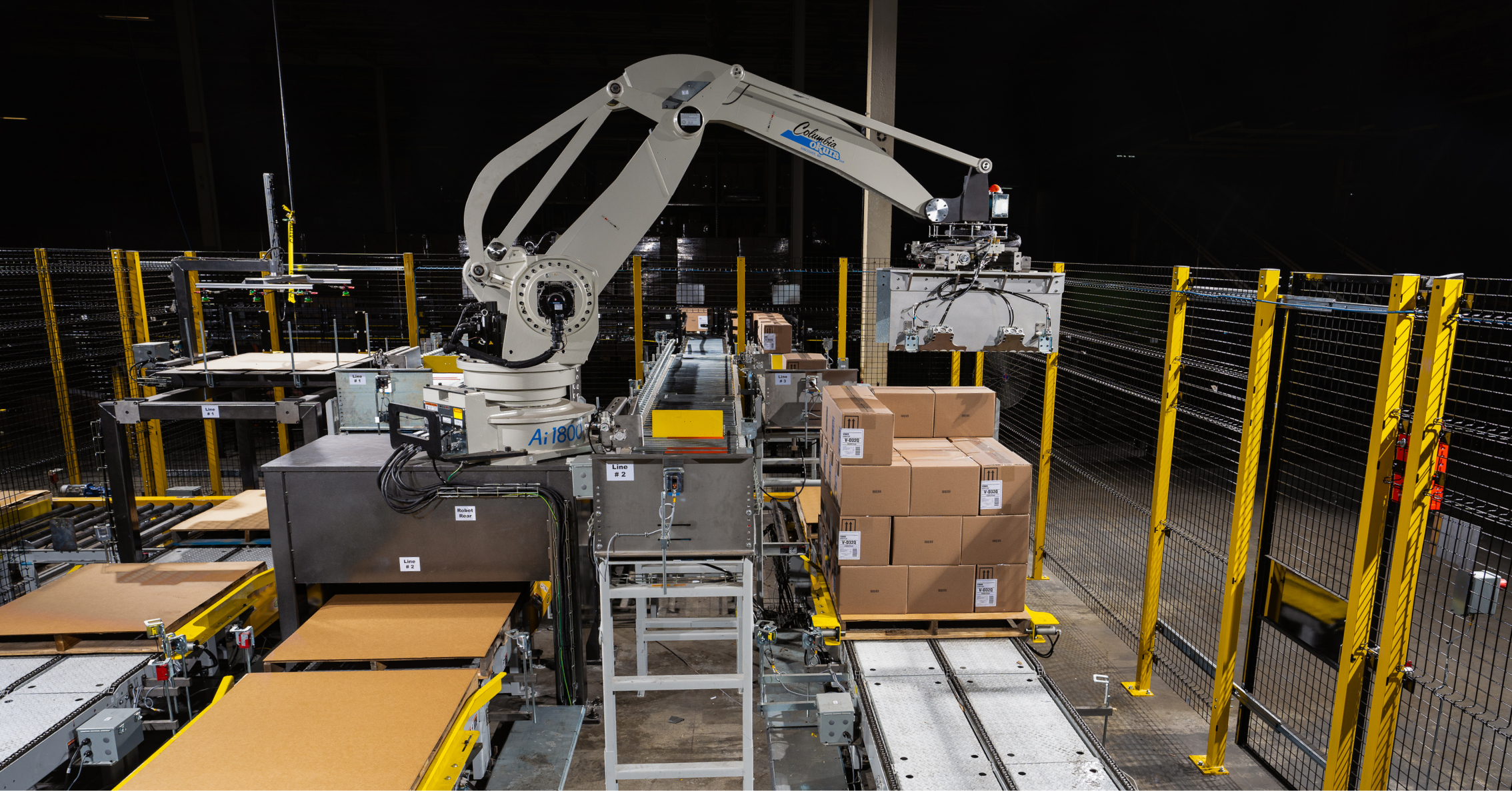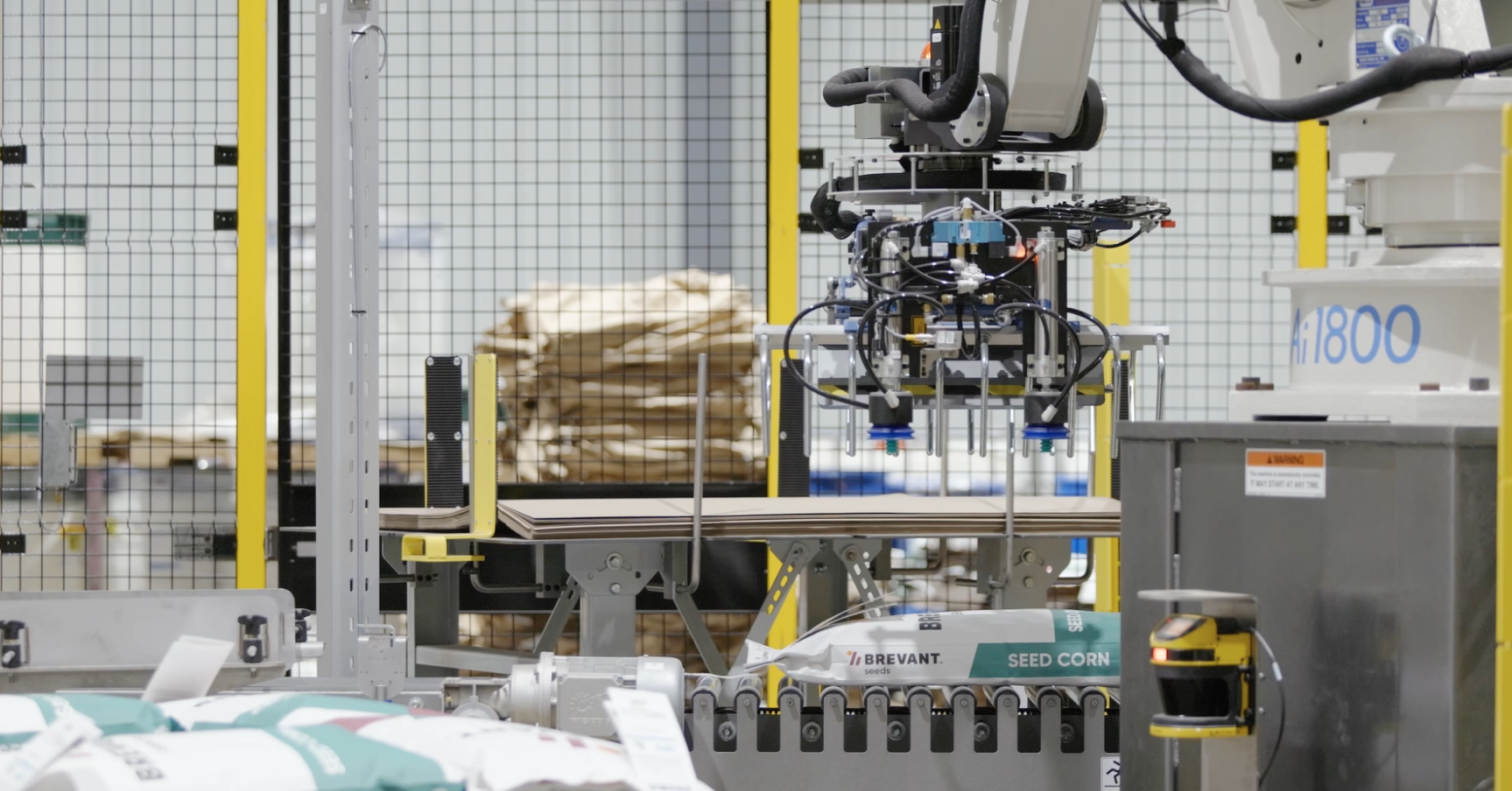New Bagging System for Sturgis Materials
Modernizing a 30-Year bagging process
Kansas City, Missouri
2025
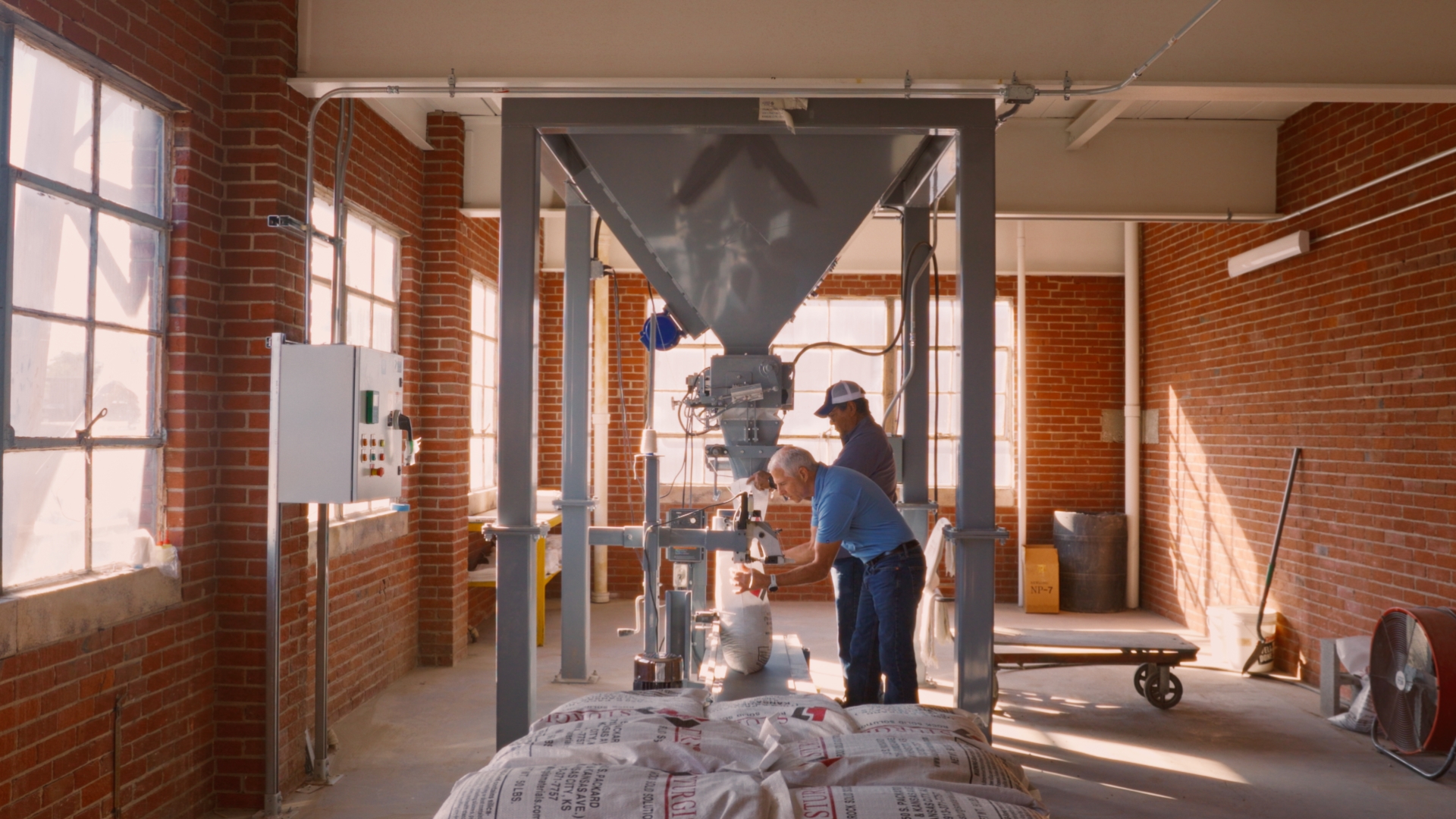
overview
Modernizing a 30-year system
Equipment Used
Bag sewing and closure system
Bulk material hopper with vibration assist
Electronic gross-weigh bagging scale with flow control
Incline trough conveyor with sensors and safety features
Integrated control system with variable-speed motor drive
Structural hopper support system
Variable-speed bagging conveyor
When Sturgis Materials, a trusted supplier of decorative rock, sand, and gravel, set out to replace their 30-year-old outdoor bagging line, they wanted more than an upgrade. Their goal was to relocate the system to a new facility, improve operator safety, and bring greater precision to every product leaving their plant.
We delivered a complete rebuild, from structural supports to an all-new conveying system and bagger, while navigating the challenges of a concrete-roofed facility with a basement below. The redesigned system features a larger, more durable incline conveyor, an upgraded weighing platform, and smarter flow control.
The result is a safer, cleaner operation that delivers accuracy, efficiency, and confidence for decades to come.
IMPACT
Key results at a glance
Accuracy That Adds Up
An upgraded electronic weighing system with a pneumatic jog feature improved precision within 0.5–1 lb per bag, reducing product loss and maximizing yield.
Built for the People Who Run It
Relocating the system to a new facility created a cleaner, safer workspace where operators can work confidently. The improved layout and automation minimize strain, reduce exposure, and keep teams focused on quality, not fatigue.
Efficiency That Scales
Enhanced conveyor design and smarter flow control boosted throughput while reducing manual adjustments.


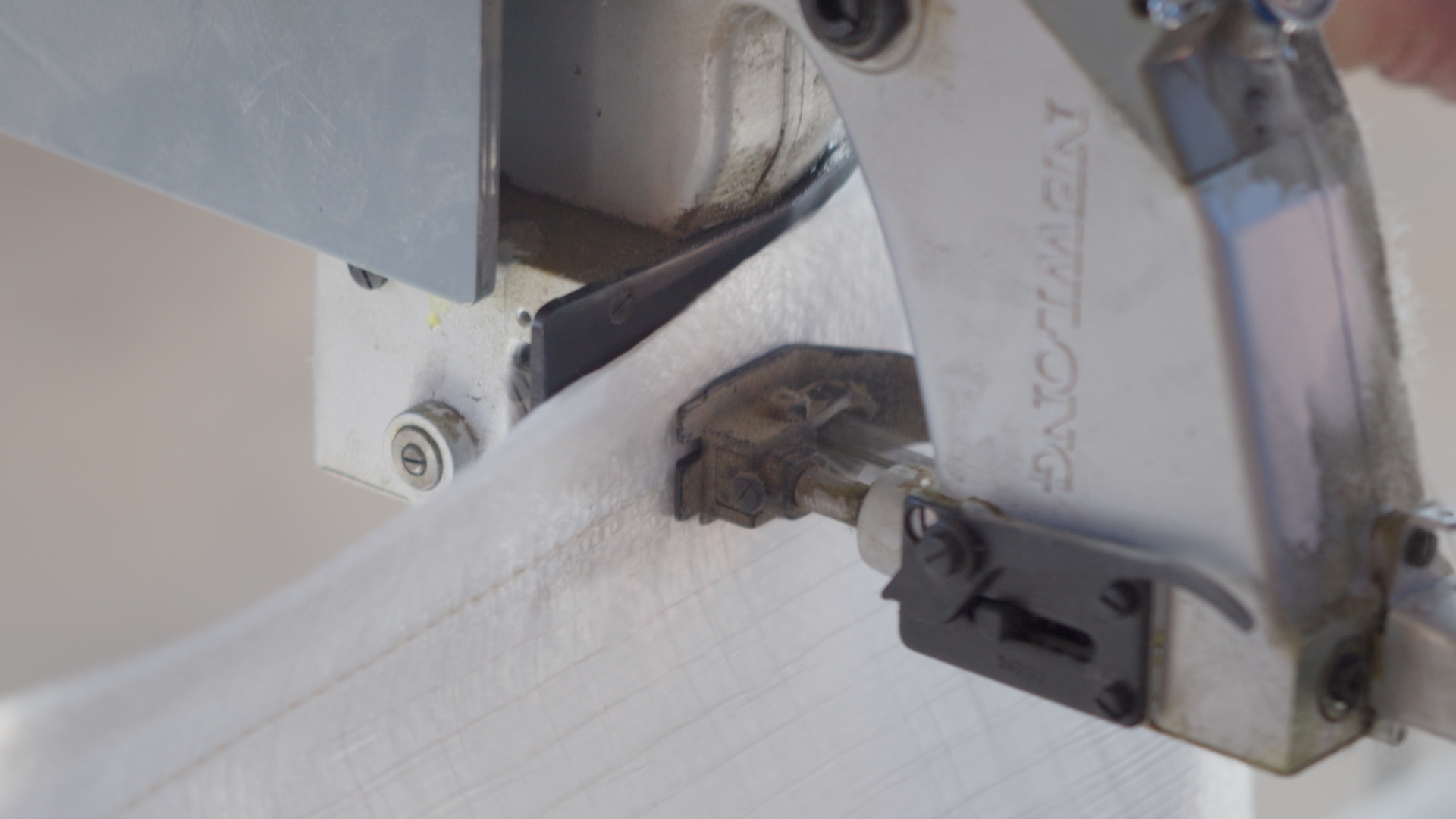
Approach
Engineering the rebuild
Before construction began, we conducted a walkthrough and quickly determined the existing building couldn’t be used. From there, our engineers designed a larger, more robust conveyor system and introduced advanced controls to optimize both speed and weighing accuracy.
The new facility presented unique challenges. With a basement below and a concrete roof above, we engineered custom supports to bridge structural loads between floors and developed a sealed roof penetration for a 300-cubic-foot hopper, complete with flashing to keep moisture-sensitive products dry. The exterior incline conveyor required deep footings, some reaching six feet deep and fourteen feet wide, to ensure long-term stability. A buried 400-amp power line also conflicted with the conveyor path. Working alongside city officials and utility partners, we trenched, encased, and rerouted the service safely, all without interrupting operations.
Once operational, the system was fine-tuned through on-site testing. Adjustments such as hopper baffling, a pipe baffle above the scale inlet, vibration assist, and flow-gate jog control ensured consistent flow across every material type, from fine sand to 3-inch decorative rock.
Through thoughtful design and close collaboration, Ambrose transformed a decades-old process into a connected system where people, equipment, and performance move as one.

